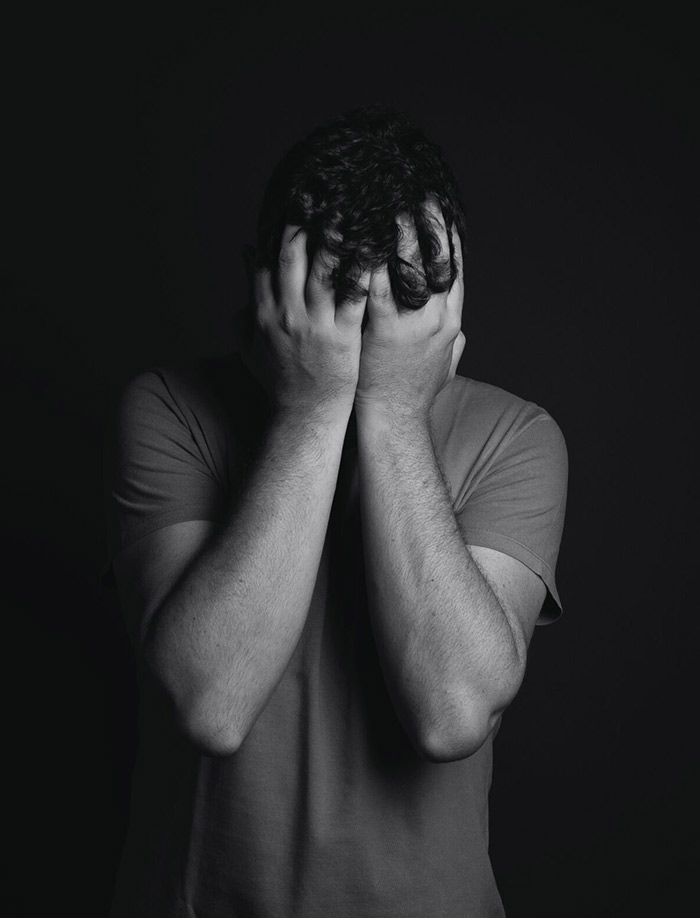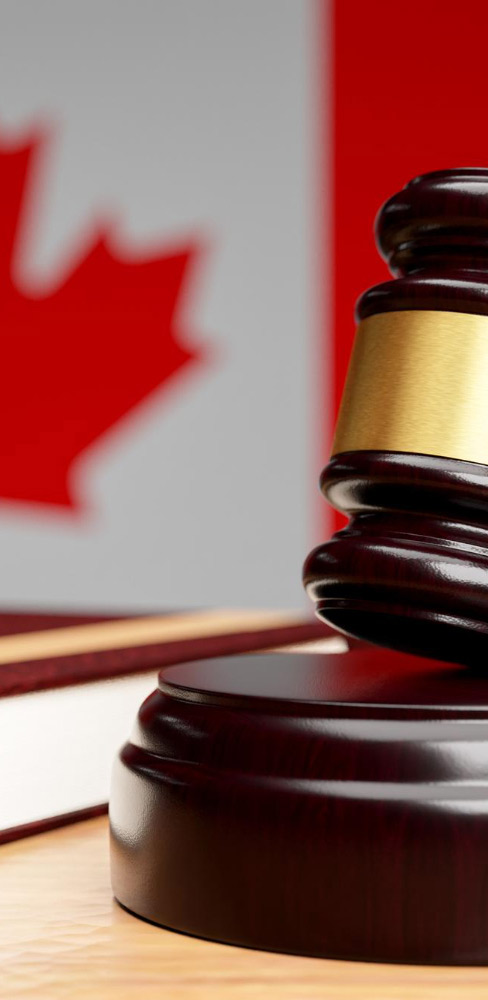Real Experience. Real Results.
Your Sexual Assault Lawyer
Serving Southern Ontario

Rupin Bal Law Professional Corporation: Your Trusted Sexual Assault Lawyers in Southern Ontario
Rupin Bal is a Sexual Assault Lawyer serving clients in Toronto, Brampton, Hamilton, Kitchener-Waterloo, London, the Niagara Region and all of southern Ontario. With Rupin Bal, an experienced criminal lawyer at its helm, the firm is known for its professionalism, integrity, and client-centric approach.
Irrespective of the nature of the criminal legal issue we recognize the distinctiveness of each case and prioritize personalized attention for our clients. By actively listening to clients’ concerns, understanding their objectives, and formulating tailored strategies, we strive to achieve the most favorable outcomes possible.
By choosing us, you’re placing your legal matters in competent hands. We are committed to safeguarding our clients’ rights, offering clear and concise legal advice, and guiding them through every step of the legal proceedings. Our mission is to empower clients with the knowledge and support necessary to make well-informed decisions and create a brighter future.
If you require legal assistance for a Sexual Assault charge within Southern Ontario, contact us for a free consultation. Our experienced legal team can assist you in navigating the intricacies of Canadian law with confidence and peace of mind. We speak English, Punjabi and Hindi.

A Strong Defence Against Sexual Assault Charges
Sexual assault allegations can range from unwelcome touching to serious accusations of rape, often resulting in a “he said, she said” situation. In many cases, the defendant and the complainant may be the only witnesses to the alleged encounter. This makes cross-examination a pivotal tool in establishing innocence. One of the most critical roles of your criminal lawyer is to carry out a thorough and strategic cross-examination. The skill, preparation, and persistence of your lawyer directly impact the effectiveness of challenging your accuser’s testimony. With years of experience, Mr. Rupin Bal is highly skilled in defending sexual assault charges and discrediting the reliability of witnesses.
In more complex cases involving medical or physical evidence, Mr. Bal has successfully cross-examined forensic experts, such as toxicologists on issues of intoxication, and medical professionals, including Sexual Assault Nurse Examiners, on alleged physical evidence.
Additionally, we work with private investigators and expert witnesses to gather critical evidence, interview key witnesses, and strengthen the defence.
For those wrongly accused of a sexual offence, the experience can be harrowing. A conviction brings severe consequences—loss of employment, long prison terms, and the lifelong stigma of being listed as a sex offender. Clients trust us because they know we are as committed to clearing their names as they are. Rupin Bal has a proven track record of exposing false accusations and revealing that alleged non-consensual acts were, in fact, consensual.
Sexual assault law is one of the most complex legal areas. We have extensive experience navigating the specific procedural rules that govern sexual assault cases. There are strict limitations on the types of questions that can be asked of a complainant, and special applications must be made to access certain records, such as prior sexual history or third-party medical and counseling documents. We have successfully filed these applications when necessary to ensure a robust defence.

Experienced Defences for Sexual Assault
At Rupin Bal Law, we have a strong track record of successfully defending against sexual assault allegations in Toronto, the Greater Toronto Area (GTA) and all of Southern Ontario. Our team has extensive experience in presenting a wide range of defences, including:
- The sexual activity in question was consensual;
- The client had an honest but mistaken belief that consent was given;
- The allegation is entirely fabricated;
- The Crown cannot prove the identification of the accused.
As a leading criminal defence practice in Toronto, Rupin Bal Law has successfully defended countless individuals charged with sex crimes. Defending against sexual assault allegations requires deep knowledge of the Criminal Code, court procedures, and the specific types of evidence permissible in court. We utilize every available tool to combat these accusations. Our experience in complex court proceedings allows us to present the strongest evidence possible, including, when relevant, the complainant’s prior sexual history and medical records.
We frequently collaborate with private investigators, pharmacologists, forensic psychiatrists, forensic toxicologists, and other experts to provide comprehensive defence strategies for our clients.
Sexual assault charges are highly complex, emotionally charged, and challenging. A conviction can have life-altering consequences, including mandatory registration on the Sexual Offender Registry, social stigma, and the potential for imprisonment. It’s crucial to have an experienced criminal lawyer who understands the intricacies of these cases and has the skill to develop the most effective defence strategy.
FAQ About Sexual Assault Offences
While some sexual assault cases revolve around whether sexual contact occurred, acentral issue in most cases is whether both parties provided consent to the sexual activity.
- When the agreement for a sexual encounter is expressed by the words or conduct of a person other than the complainant.
- If the complainant is incapable of consenting due to their mental state at the time, including intoxication, incapacity, unconsciousness, mental illness, etc.
- When the accused person induces the complainant to engage in the activity by abusing a position of trust, power, or authority.
- If the complainant expresses, by words or conduct, a clear lack of agreement to engage in the sexual activity.
- When the complainant, having initially consented to sexual activity, later expresses, by words or conduct, a lack of agreement to continue the conduct.
- If the complainant is under the age of 16, and the “close in age” exception doesn’t apply.
person may be deemed not guilty of sexual assault even if engaging in sexual activity that the complainant did not consent to, provided the accused person genuinely believed, albeit mistakenly, that the complainant was consenting.
Sexual assault refers to any form of unwelcome sexual contact, not limited to non-consensual intercourse. It includes acts such as touching, kissing, and fondling. To determine whether the contact was sexual, the court evaluates the entire context, considering factors such as the body part involved, the verbal and physical actions surrounding the incident, the accused’s intentions, and the setting in which the conduct occurred.
According to Canadian criminal law, a person cannot give valid consent to sexual activity if they are intoxicated, unconscious, or asleep. Before engaging in any sexual activity, it is essential to take reasonable steps to ensure that the other party is giving clear consent. In Canada, the legal age of consent is 16. While there are a few exceptions, individuals can legally agree to sexual activity only once they have reached this age.
A conviction for sexual assault can result in severe penalties, ranging from probation to significant prison time, depending on the nature of the offence. Given the broad definition of sexual assault, sentences vary widely. If the complainant is a minor, the maximum penalty could range from 10 to 14 years in prison. For aggravated sexual assault, the potential maximum sentence is life imprisonment. Beyond incarceration, a conviction can also lead to collateral consequences, including civil lawsuits filed by the complainant.
If convicted of a sexual offence, the court may order you to register with the Canadian Sex Offender Registry, a nationwide database containing information on individuals convicted of specific Criminal Code offences. These offences include:
- Sexual assault
- Sexual assault with a weapon
- Aggravated sexual assault
- Sexual interference
- Invitation to sexual touching
- Sexual exploitation
- Incest, bestiality
- Child pornography
If you have attempted or conspired to commit any of these offences, you may also be required to register.
While your name is protected from the general public, the information is accessible to accredited police departments across Canada. Under the Sex Offender Information Registration Act (SOIRA), registered individuals must provide annual updates, including:
- Name
- Date of birth
- Current address
- Vehicle information
- Recent photograph
- Identifying marks
- Employment or volunteer information and address
- Details of any sexual offence convictions
When a sexual offender is released into the community, police may notify the public, even though the public cannot directly access the National Sex Offender Registry. If your name is added to the registry, it could remain there for life. However, with a strong legal strategy from an experienced sexual assault lawyer at our Toronto law firm, it may be possible to avoid this outcome.
What our client's say
Posted onTrustindex verifies that the original source of the review is Google. I sought legal advice from Rupin Bal, and couldn't be more impressed. He took the time to thoroughly understand my situation and offered clear, thoughtful guidance which gave me the confidence to make informed decisions. If you need sound legal advice, I highly recommend reaching out to Rupin Bal.Posted onTrustindex verifies that the original source of the review is Google. I can’t recommend Rupin Bal Professional Corproation enough. Rupin and his highly competent team provided exceptional legal advice throughout my case. They have a deep understanding of the law and are incredibly patient when explaining all available options. If you’re looking for reliable, skilled representation, this firm is definitely the one to trust.Posted onTrustindex verifies that the original source of the review is Google. I was very impressed with the professionalism and care I received at Rupin Bal’s office. From the start, it was clear that they operate with the highest level of integrity and legal expertise. I had the pleasure of speaking with Rupin & Preet, who was attentive, knowledgeable, and genuinely interested in helping. She took the time to listen, answered my questions clearly, and offered thoughtful guidance without any pressure. It’s rare to find a legal professional who combines deep legal insight with such a respectful and compassionate approach. If you’re looking for a criminal defense attorney who treats clients with dignity and takes their role seriously, you’ve found the right place.Posted onTrustindex verifies that the original source of the review is Google. I highly recommend Preet for anyone seeking expert criminal defence. Her professionalism, in-depth legal knowledge, commitment was evident from the start. Preet provided clear guidance throughout the process and made sure I felt supported. Her strategic approach and attention to detail was invaluable. If you need a skilled and dedicated criminal defence attorney, Preet is an excellent choice.Posted onTrustindex verifies that the original source of the review is Google. If you're looking for a skilled and reliable criminal lawyer, I highly recommend working with this professional. Their knowledge of the law, attention to detail, and ability to handle even the most complex cases is truly impressive. Simply the best!Posted onTrustindex verifies that the original source of the review is Google. Excellent ! Earned a client for lifePosted onTrustindex verifies that the original source of the review is Google. I can’t recommend Rupin Bal highly enough. Incredibly sharp, reliable, and genuinely cares about the people he represents. If you ever need someone in your corner, this is who you want. A true professional in every sense.Posted onTrustindex verifies that the original source of the review is Google. Professional, Reliable, and trustworthy. Rupin and his team are meticulous and committed to getting the best results for their clients.
Your Sexual Assault Lawyer in Southern Ontario.
FREE CONSULTATION
Reach out to our Sexual Assault Lawyers now to schedule a complimentary legal consultation and let our experienced team provide you with the guidance you need.
We serve clients in Toronto, Brampton, Hamilton, Kitchener-Waterloo, London, the Niagara Region, all of southern Ontario and speak English, Punjabi and Hindi.
